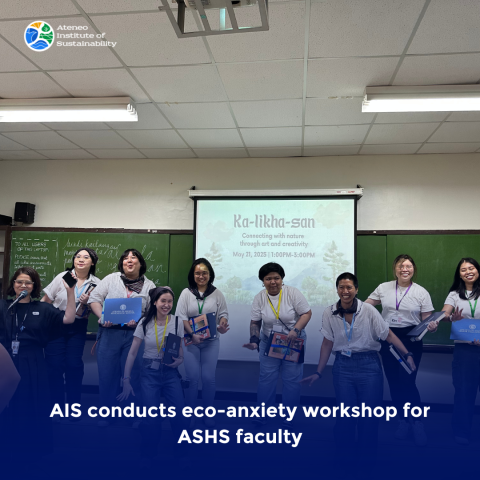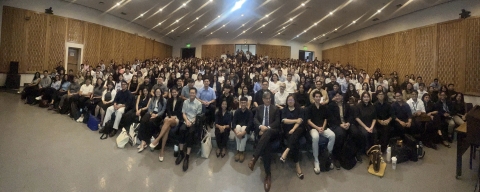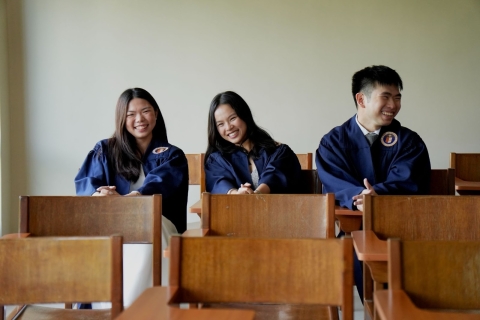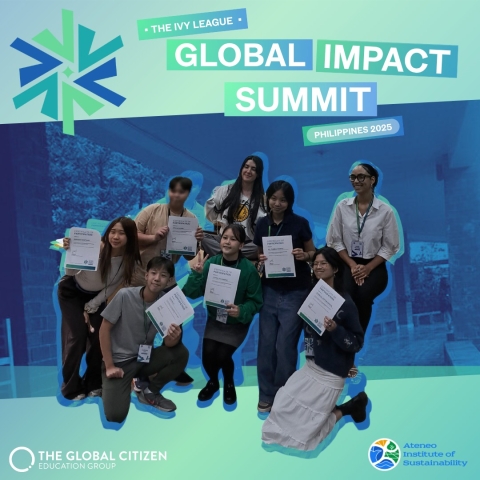Ateneo, UP MICROCASA partners kick off 3rd roundtable discussion on micro-credentials in Southeast Asia
12 Nov 2024 | Christian F Dasalla
QUEZON CITY, Philippines – Ateneo de Manila University welcomed local and international higher education stakeholders at the MICROCASA project’s Third Roundtable Discussion (RTD3) last 28 October 2024 at the Conference Room of Faber Hall. Ateneo de Manila University, through the Institute of Philippine Culture-School of Social Sciences (IPC-SOSS) is a member of the 11-institution strong consortium of the MICROCASA project and is the host of the project activities in Manila during the month. The event, an integral output of the MICROCASA project consortium, brought together experts and academic leaders from the project’s Southeast Asia and Europe partner universities and was centered on efforts for advancing micro-credential recognition and acceptance in higher education within Southeast Asia. It focused on the MICROCASA White Paper—a strategic document to guide the adoption of micro-credentials in the region. The discussion emphasized collaboration, quality assurance, and adaptability, which are key components in meeting the needs of a rapidly changing labor market through the Erasmus+-funded program in collaboration with the European Union, 6 Southeast Asian universities, and technical partners from Europe.
The kick-off event was moderated by Dr Marita Concepcion Castro Guevara, Research Associate at the Institute of Philippine Culture and Associate Professor for Interdisciplinary Studies at the Ateneo, opening the program by introducing the MICROCASA Project and its key partners. Mr Joselito T Sescon, Acting Director of the Institute of Philippine Culture and Professor of Economics at the Ateneo, then took the floor to deliver opening remarks on behalf of Dr Czarina A Saloma-Akpedonu, Dean of the Ateneo School of Social Sciences. Mr Sescon underscored Ateneo’s commitment to education and lifelong learning, emphasizing that the MICROCASA initiative aligns with the university's mission to foster adaptable human capital through micro-credentials. The event had also been graced by the presence of Ms Ma Cristina Morales-Alikpala, Assistant Vice President for University Partnerships and Internationalization, Dr Anne Lan K Candelaria, Assistant Vice President for Graduate Education, Dr Philip Arnold P Tuaño, Dean of the Ateneo School of Government, and Dr Andrei Coronel, lead coordinator for Open and Distance Education Learning (ODeL) for Graduate Education.
Micro-credentials’ potential for the future of education
In a welcome address, Dr Armin Weinberger, Professor of Educational Technology at the University of Saarland, Germany, and Project Coordinator for MICROCASA, highlighted the relevance of micro-credentials in addressing emerging educational challenges. Dr. Weinberger noted that micro-credentials allow higher education institutions to provide competence-based, flexible learning pathways to upskill students quickly and effectively, preparing them for dynamic global labor markets. He praised the international partnership that makes the project possible, encompassing institutions from Germany, Italy, Malaysia, Indonesia, and the Philippines.
A message of support had also been given by H.E Massimo Santoro, the European Union Ambassador to the Philippines, wherein he reiterated the EU’s commitment to the MICROCASA Project. Ambassador Santoro emphasized the importance of micro-credentials in aligning with the EU’s Indo-Pacific strategy, enhancing connectivity and sustainable economic growth. The EU aims to strengthen academic institutions’ capacities to offer competence-oriented educational modules that benefit both students and employers across Southeast Asia.
Building replicable educational frameworks
Ms Vera Lucke of CIMEA Italy presented the current educational process of the Asia-Europe Meeting (ASEM), highlighting recent discussions among educational leaders on micro-credentials at the 9th ASEM Ministers’ Meeting in Malta, sharing insights from ASEM’s commitment to digitally enhanced education with micro-credentials now being a central focus. Giannandrea Guglielmi, also from CIMEA, discussed micro-credential recognition and how the European Union’s ENIC-NARIC Networks play a crucial role in developing a standardized approach to micro-credentials across Europe, which could serve as a model for Southeast Asian countries. He underscored the need for collaboration between educational institutions, quality assurance agencies, and industry stakeholders to ensure that micro-credentials meet international standards and enhance students' mobility and employment opportunities.
At the heart of the program, Ms Manuela Costone, Senior Project Manager at CIMEA-NARIC in Italy, presented the MICROCASA White Paper, offering recommendations and a roadmap for implementing micro-credentials in Southeast Asia. Costone described the White Paper as a result of 20 months of research and stakeholder engagement across multiple countries, with key recommendations including promoting awareness, defining micro-credential providers, enhancing quality assurance, and leveraging digitalization. Reactions and reflections on the White Paper’s strengths, weaknesses, and opportunities were then shared by representatives from the Philippines, Malaysia, and Indonesia—namely Dr Radziah Adam of the Universiti Sains Malaysia, Dr. Alwin Sambul of the Universitas Sam Ratulangi, Indonesia, and Ateneo’s very own Dr Dennis Batangan, Research Scientist at the Institute of Philippine Culture. Discussions emphasized the importance of stakeholder collaboration and regulatory support to implement micro-credentials effectively. This was followed by the synthesis of feedback from online and onsite attendees by Federica Sancillo and Francesco Sanasi of CIMEA. The feedback will guide future steps toward widespread microcredential adoption in Southeast Asia and further refinement of the White Paper, with its projected public release in early 2025.
The third roundtable marked a significant milestone for the MICROCASA Project, underscoring the value of international cooperation in evolving educational models for the future of education in Southeast Asia. The consortium’s work continues to shape a future in which micro-credentials equip learners with the skills to thrive in a rapidly changing world.







